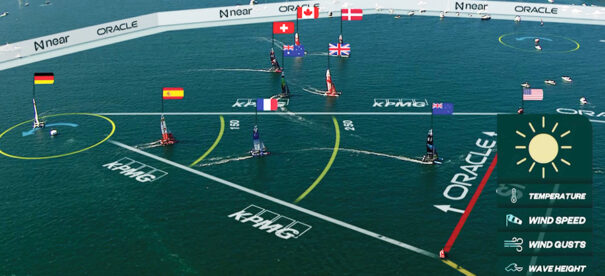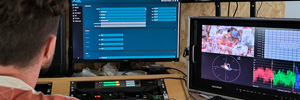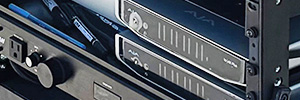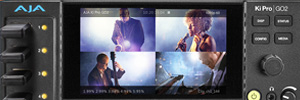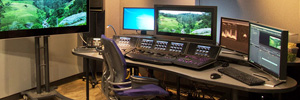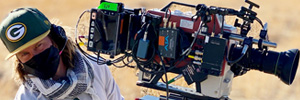RT Software integrates AR into catamaran races leveraging the I/O capabilities of AJA Corvid cards
AJA Corvid boards are used to manage the I/O for RT Software‘s graphics stream, whose AR capabilities have recently been harnessed for a major global catamaran racing event.
Catamaran racing, held on open water, involves boats racing at speeds of up to 50 knots (92 kilometres per hour) while battling the elements, which makes broadcasting the races to fans extremely difficult. UK-based RT Software specialises in developing tools to help professionals deliver ambitious live broadcasts of events in this kind of context. The company has developed its proprietary Swift Engine, which enables broadcasters such as Sky Sports, Sky News, TNT Sports (UK), Eurosport (France), TRT (Turkey), Bell Media (Canada), SABC (South Africa) and TVNZ (New Zealand) to deliver high quality graphics for demanding broadcasts.
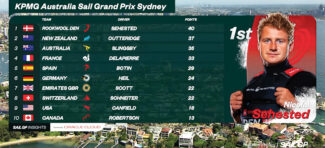 To achieve the highest reliability in the deployment of these workflows, RT Software has relied on AJA solutions for more than 20 years. Ian Young, the company’s marketing director, underlines the growing importance of the company’s Corvid cards: “Most broadcasters are still using SDI, and our AJA Corvid cards are important in ensuring that our customers can manage those workflows. However, we are seeing a slow shift to IP for both uncompressed SMPTE ST 2110 and the lower bandwidth alternative of NDI.”
To achieve the highest reliability in the deployment of these workflows, RT Software has relied on AJA solutions for more than 20 years. Ian Young, the company’s marketing director, underlines the growing importance of the company’s Corvid cards: “Most broadcasters are still using SDI, and our AJA Corvid cards are important in ensuring that our customers can manage those workflows. However, we are seeing a slow shift to IP for both uncompressed SMPTE ST 2110 and the lower bandwidth alternative of NDI.”
The combination of RT ‘s software solutions and AJA’s Corvid card was recently deployed at a popular catamaran competition, commonly held in some of the world’s “glamorous” locations, such as San Francisco and Dubai. On this occasion, the signals picked up by the helicopters were sent in real time to the London facility via a high bandwidth distribution network. From there, the signals were distributed to several PC-based graphics stations running RT Software’s Swift Engine, AJA Corvid 88 cards for video I/O, and an NVIDIA GPU for processing. Once the video arrives, gallery operators overlay the graphics creating augmented reality effects. The signal is then sent back to the competition’s host broadcaster.
“It sounds simple but there’s a lot of video coming in and out simultaneously, which requires quite a bit of hardware and processing power. Once we hand off our systems to customers, we endeavour to make them self-sufficient with them, but we continue to provide any support that might be required. It’s incredible to see how they use our technology and the integrated AJA equipment in live productions,” Young concludes.
¿Te gustó este artículo?
Suscríbete a nuestro RSSフィード Y no te perderás nada.



